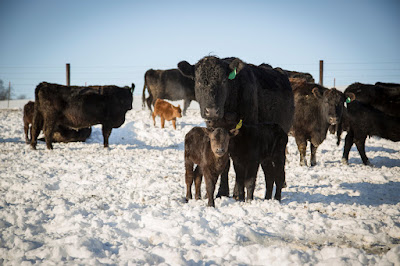What’s important during this life stage?
- Maintaining the cow’s body condition score (BCS)
- Establishing calf immunity through the consumption of maternal antibodies via quality colostrum
- Reproductive performance in beef cattle
 |
| How to ensure Cow-Calf health |
Common challenges
- Poor reproductive rates: This could be the result of nutritional deficiencies, particularly of trace minerals, or disease challenges.
- Forages with high mycotoxin concentrations: Mycotoxins can reduce rumen efficiency in addition to negatively impacting reproduction.
- Low-quality forages: Examining forage quality is key, as forages with poor digestibility or those that are low in protein can lead to nutrient deficiencies without proper supplementation.
- Poor colostrum quality: Colostrum is an important source of maternal antibodies and nutrients, which are essential in promoting proper immune development and growth in the newborn calf.
- Calfhood scours: Scours may be due to failed passive transfer, which is an absence of the transfer of maternal antibodies; it can also be linked to unclean calving areas.
Tips for maximizing health and performance
Provide proper nutrition.
Ensure that the cows’ diets are not deficient in important nutrients (i.e., protein, energy or minerals), as nutrient requirements change throughout pregnancy.
Provide proper supplementation during times of deficiency (e.g., protein or mineral supplementation during the winter months).
Keep in mind that mineral supplementation is important for grazing herds, as forages rarely meet the mineral requirements of the cow.
Properly manage calving areas.
Ensure that calving areas are clean and dry, with plenty of dry bedding available.
Don’t overcrowd crowding pens. Overcrowding can lead to calf injury and creates a heavier pathogen load due to the increased amount of manure in the pen.
Remove animals from the calving area according to calf age. This prevents older calves from spreading pathogens to younger calves, who have a less robust immune response.
Stay up to date on all dam and calf vaccinations.
Work with your veterinarian to establish a cow and calf vaccination schedule.
